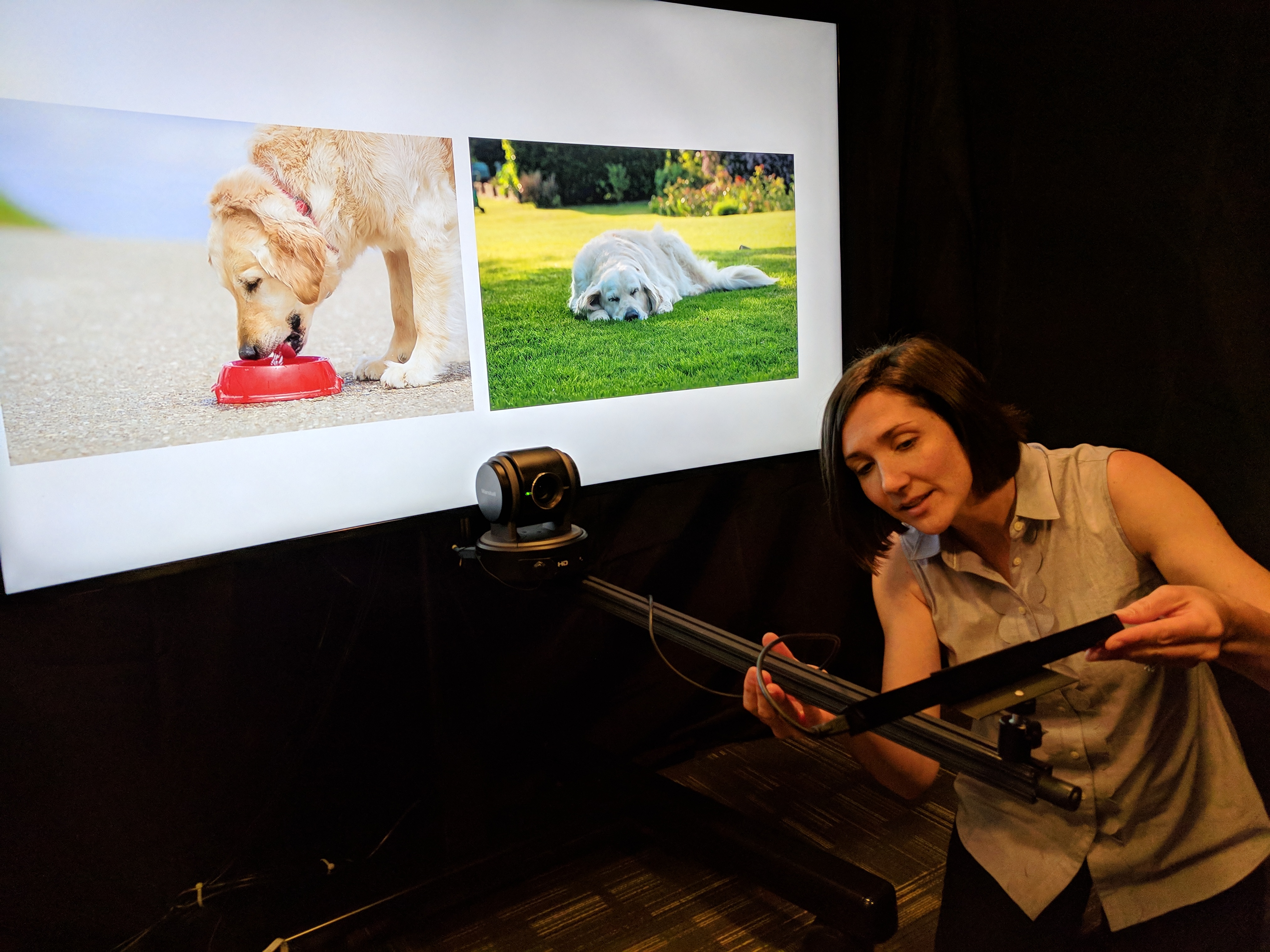An assistant professor within the Michigan State University College of Communication Arts and Sciences has received an early career research award from a division of the National Institutes of Health. The award will support research into language acquisition and development in young children with autism.
Courtney Venker, assistant professor of communicative sciences and disorders, launched research in January 2018 that focuses on how patterns of non-social attention may affect language development. Venker’s research will draw from a combination of behavioral assessments and eye-tracking methods to look at how attention affects the acquisition of words in children ages 2 to 5 who are diagnosed with autism.
“A lot of children with autism have trouble learning language and can lag behind in terms of what they understand and say,” says Venker. “Attention can be a factor. This project looks beyond social attention to discover what kids are perceiving or looking at when they’re not engaging with people, and to use that knowledge to support their language development.”
Venker directs the College’s Lingo Lab in the Oyer Speech and Hearing Building. That lab will serve as a setting for observing about 40 kids with autism and 40 kids with typical development starting this summer. She will interact with participating children on a periodic basis, assisted by undergraduate and graduate students from MSU.
Parents or primary caregivers will “hang out” with their toddlers or kids during each lab visit to minimize stress and create a comfortable environment. Her research will apply a variety of methods including standardized language and cognitive assessments, and behavioral coding of parent-child play. Data will be gathered by remotely tracking eye movement to assess how children with ASD integrate auditory and visual information when learning words.
“Using eye-gaze or eye-tracking methods is beneficial because we know that kids with autism can have difficulty interacting with people and pointing to pictures,” Venker says. “We’re trying to assess their knowledge and abilities in a way that places fewer demands on them.”
Eye-tracking allows researchers to measure language processing and learning in real time, and is less obtrusive than asking children to reach, point and answer questions. Venker will also incorporate salient elements into sessions since kids with autism are more likely to focus on things that are bright, colorful or complex like geometric patterns. Her hypothesis is that children with autism will pick up words and language faster and better when their learning is tied to things that interest them.
Venker’s research is supported by an Early Career Research Award from the National Institute on Deafness and Other Communication Disorders at the National Institutes of Health. The $300,000 award will be allocated in equal amounts over the three-year project.
“The intent of this award is to gather preliminary data for larger scale studies in a couple years,” says Venker. “I’m very honored to have NIH support as a new assistant professor. It allows us to move forward, have the resources to gather a great team of undergraduate and graduate students, and to compensate families for their time and effort in participating.”
By Ann Kammerer
